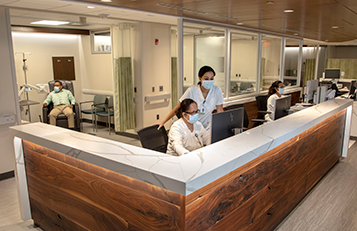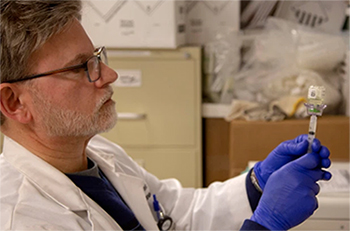Latest Updates on the Coronavirus:
This page will be updated as new information becomes available.
Your Care at Holy Name During the Pandemic

Holy Name Medical Center has resumed normal operations, but many of you may wonder, “Is the hospital safe?” The answer is “Yes.” As the number of people with COVID-19 starts to rise again in the northeast, be assured that Holy Name continues to practice stringent cleaning protocols and follows social-distancing guidelines while helping you and your family meet your healthcare needs and goals. Our approach to caring for patients who have and do not have COVID reflects the same level of vigilance and safety initiated at the onset of this crisis.
In the spring, we were the first hospital in North Jersey to complete a rigorous, deep cleaning of our 450,000 square feet of clinical and non-clinical space. We started with manual disinfection, then applied electrostatic sanitizing mist, and finally, blasted UV-C light to kill more than 30 types of pathogens—including COVID-19.
Over the summer and fall, we refined our procedures, continued our safety and hygiene processes, and made certain our inventories of technology, equipment, PPE, ventilators, and therapeutics were complete. We are using a $5 million grant from the NJ Department of Health to fund two district projects that will assist in COVID testing and preventing the flu: a high-throughput analyzer for rapid COVID testing, and three staffed mobile vans, each with negative-pressure COVID testing rooms that can alternately accommodate vaccinations.
We are also expanding our telemedicine services, recruiting nurses, and building a new state-of-the-art ICU for non-COVID patients who are critically ill or recovering from major surgery. The ICUs and step-down units that we built in the spring to accommodate COVID-19 patients remain intact to treat these patients with the most advanced care in areas that are isolated from our non-COVID patient care units.
